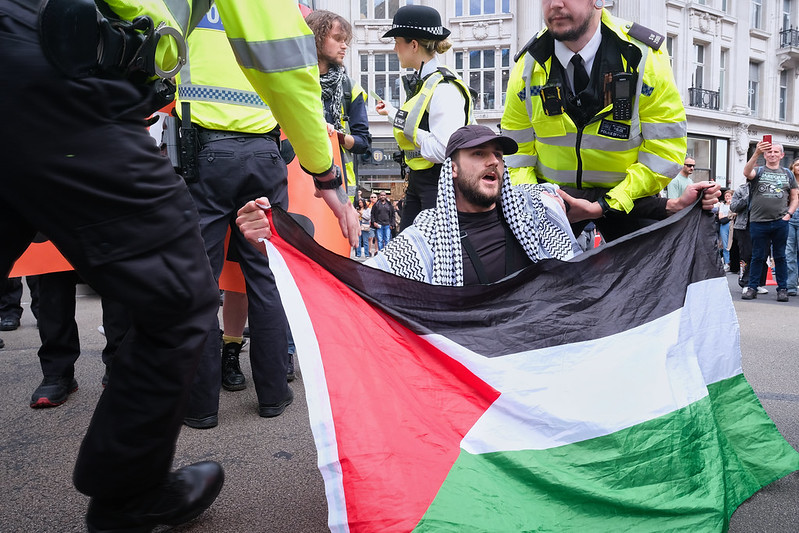CAGE Files Application to Deproscribe Hamas Due to Systemic Suppression of Free Speech


London – CAGE International has filed a landmark legal application with the UK Home Secretary to remove Harakat al-Muqawamah al-Islamiyyah (Hamas) from the UK list of proscribed organisations.
The case challenges the legality of the proscription on the grounds that it violates freedom of expression and is being applied in a discriminatory manner, in violation of Articles 10 and 14 of the European Convention on Human Rights.
The submission is the first of its kind to focus not only on procedural injustice, but on the systemic suppression of political speech, particularly within Britain’s Muslim communities. It highlights the weaponisation of section 12 of the Terrorism Act 2000 against pro-Palestine advocacy. The Act criminalises support for proscribed organisations including social media posts, public speech, or even attending meetings.
Muhammad Rabbani, Managing Director of CAGE International, said:
“The chilling effect on political speech in support of Palestine is stark. The systematic suppression of pro-Palestinian speech threatens not only those targetted, but also the principles of open debate and political freedom upon which a free society must be based.”
“This case is about restoring a fundamental right and protection for our clients and communities — the right to speak freely, without fear of criminalisation.”
24 case studies spanning six sectors highlighting systemic harm
The application includes 24 anonymised case studies spanning six sectors. They feature:
- Teachers suspended or dismissed, students facing lenthy disciplinary proceedings, and doctors investigated or suspended for online comments;
- Activists, academics and professionals subjected to house raids and confiscation of property;
- Stops at airports under Schedule 7 and arrests under Section 12 of the Terrorism Act 2000, and onerous bail conditions.
- Individuals facing immigration sanctions including visa revocations or deportation orders for expressing support for the right of Palestinians to resist;
- Children as young as eight years referred to, or threatened with referral, to Prevent for expressing solidarity with Palestine;
- A consistent pattern of arrests and harassment with unsuccessful prosecution, yet leaving lasting damage.
CAGE’s evidence reveals that prosecutions and disciplinary actions are overwhelmingly directed at Muslims, often triggered by bad-faith actors and amplified by a politicised regulatory environment. The submission argues this amounts to a discriminatory application of the law, contrary to Article 14.
Enabling diplomacy and preventing arbitrary abuse of power
The UK remains an outlier in continuing to proscribe Hamas in its entirety, despite growing international engagement with the political wing of the organisation and its de facto governance of Gaza.
Muhammad Rabbani, Managing Director of CAGE International, added:
“The continued proscription of Hamas is violating long-established freedoms enshrined in British law. It is enabling the expansion of authoritarian powers, all at the service of, and to defend the Zionist entity’s livestreamed genocide in Gaza.”
“Deproscription is about reckoning with a political and diplomatic reality in addition to remedying the discriminatory application and abuse of power."
CC image courtesy of alisdare1 on Flickr
Download Files
Read More
CAGE International has submitted a landmark legal application (10 June 2025) to the UK Home Secretary, seeking the removal of Harakat al-Muqawamah al-Islamiyyah (Hamas) from the list of proscribed organisations. This unprecedented challenge argues that the proscription violates Articles 10 and 14 of the European Convention on Human Rights by criminalising political expression and disproportionately targeting Muslim communities. The submission includes 24 anonymised case studies across six sectors, revealing a pattern of systemic harm: educators, doctors, activists, and children penalised for pro-Palestine speech, often based on dubious referrals and in a highly politicised regulatory climate. It highlights the weaponisation of Section 12 of the Terrorism Act 2000, which has been used to criminalise online posts, public speech, and peaceful assembly. CAGE contends that these measures suppress legitimate political discourse and enable arbitrary state power, under the guise of national security.
The full legal application can be downloaded below.








